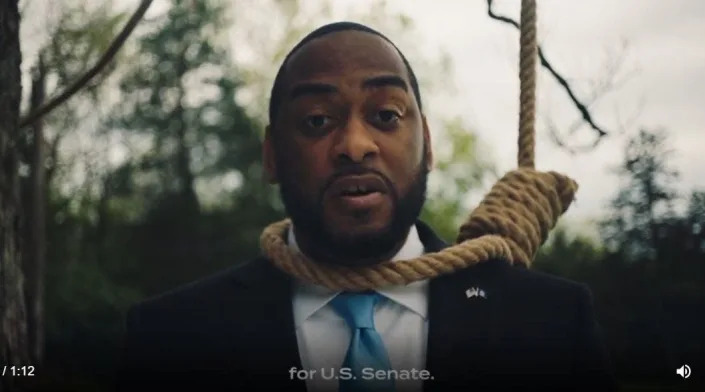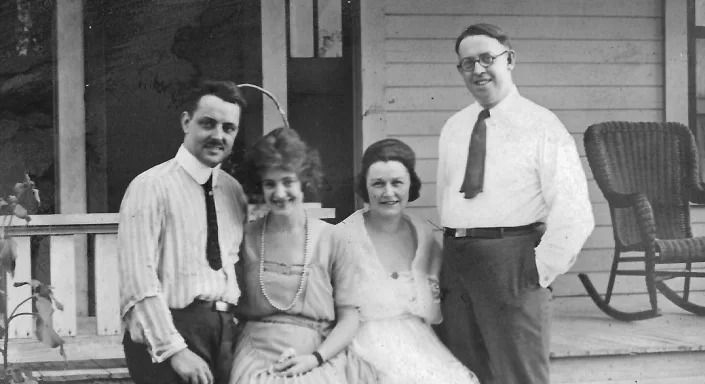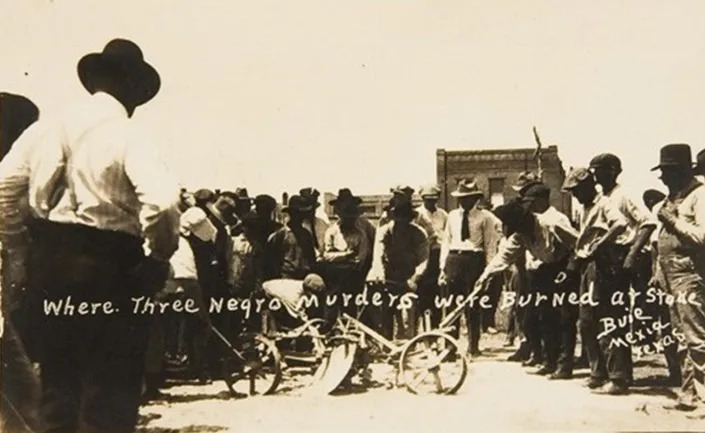Korin Miller
Tue, May 31, 2O22
Women march and carry signs in support of abortion rights and the Equal Rights Amendment.
(Photo: Getty Images)
People across the country were shocked when a draft opinion from the Supreme Court written by conservative Justice Samuel Alito leaked in early May, suggesting that the court plans to overturn Roe v. Wade — the historic court case that has made abortion legal in the U.S. for the past 50 years.
In the wake of the leak, many people have spoken out, sharing their concerns about what overturning Roe v. Wade would do to women and women's health care. Among those worried about the consequences of reversing the nationwide legality of abortion? Doctors who practiced when abortion was illegal.
One is Dr. Warren Hern, founder of the Boulder Abortion Clinic. Hern, who graduated from medical school in 1965, tells Yahoo Life that he saw the "tremendous problems" women had before they could legally access abortion care. "Many women died," he says.
Hern shares that he and his fellow residents spent many nights taking care of women who were "desperately sick" from having illegal abortions. "Many were about to die," he says. Hern says he also saw women who planned to give up their babies for adoption suffer extreme and serious complications while giving birth. "One woman started severely hemorrhaging while she was in labor and the baby ended up brain-damaged as a result," he says. "She was going to give it up for adoption."
He also cared for unwanted children who were victims of abuse. "On my pediatric rotation, I wound up taking care of a lot of young children who were abused and battered by parents who didn't want them," he says.
Hern says he had planned to have a career in public health but, after all that he witnessed in the U.S. and while providing medical care abroad, he decided to go into abortion care. "I became the founding medical director of the first medical abortion clinic in Colorado in 1973," he says. "During that time, I decided that performing abortions was the most important thing I could do in medicine. I wanted to help women."
Dr. Susan B. Shurin, the former deputy director of the National Heart, Lung, and Blood Institute (NHLBI) at the National Institutes of Health, tells Yahoo Life that she saw the consequences of "lack of access of reproductive choice" as a medical student. "In my time in training in Baltimore and Boston, I saw children, teens and adult women with unwanted — sometimes abused and neglected — children, major medical complications and death," she says, adding that some suffered "infertility from a botched procedure."
A 2008 New York Times editorial written by the late gynecologist Dr. Waldo L. Fielding described some of the horrors he witnessed before Roe v. Wade. "The familiar symbol of illegal abortion is the infamous coat hanger — which may be the symbol, but is in no way a myth," he wrote. "In my years in New York, several women arrived with a hanger still in place. Whoever put it in — perhaps the patient herself — found it trapped in the cervix and could not remove it."
Fielding continued, "The worst case I saw, and one I hope no one else will ever have to face, was that of a nurse who was admitted with what looked like a partly delivered umbilical cord. Yet as soon as we examined her, we realized that what we thought was the cord was in fact part of her intestine, which had been hooked and torn by whatever implement had been used in the abortion. It took six hours of surgery to remove the infected uterus and ovaries and repair the part of the bowel that was still functional."
Multiple medical boards, including the American Board of Obstetrics and Gynecology, spoke out in a New England Journal of Medicine editorial in 2019 over fears that Roe v. Wade would eventually be overturned. "Some of us are old enough to have witnessed firsthand the consequences of illegal abortions performed by unskilled providers under nonsterile conditions; the rest of us have learned those lessons from history," the editorial reads. "Sadly, however, we will not need history as our teacher if Roe is overturned in the Supreme Court because we will again witness deaths and permanent injuries of women desperate to terminate pregnancies."
The editorial also stated that "none of us want to return to a time when desperate women, often of limited means, sought unsafe pregnancy terminations and suffered irreversible harm and sometimes death. The decision to terminate a pregnancy is a deeply personal and difficult one that deserves to remain the prerogative of each woman and her care provider and not to be usurped by the government."
Shurin has concerns that things will go back to the way they were if Roe is overturned. "We know what not to do," she says. "Banning abortion was and will again be like banning alcohol during Prohibition. It will be driven underground, unsafe and unavailable for the poor but not the rich."
She continues: "We know what to do — abortion should be safe, legal and rare. Good sex education and easy access to contraception prevent abortion." Shurin cites Colorado as an example of this: In 2019, state officials announced that they had cut the teen pregnancy and abortion rate in half with a new family planning program.
Hern fears that overturning Roe v. Wade will make things "worse" for women than they were in the past "because now there is this witch hunt for people seeking abortions."
He urges people to view abortion care as part of health care. "It is very important for people to understand that access to a safe abortion is a fundamental part of women's health care," Hern says. "There are no justifications whatsoever for any restrictions on abortion services. It's medical care, and it should be accessible to all."
People across the country were shocked when a draft opinion from the Supreme Court written by conservative Justice Samuel Alito leaked in early May, suggesting that the court plans to overturn Roe v. Wade — the historic court case that has made abortion legal in the U.S. for the past 50 years.
In the wake of the leak, many people have spoken out, sharing their concerns about what overturning Roe v. Wade would do to women and women's health care. Among those worried about the consequences of reversing the nationwide legality of abortion? Doctors who practiced when abortion was illegal.
One is Dr. Warren Hern, founder of the Boulder Abortion Clinic. Hern, who graduated from medical school in 1965, tells Yahoo Life that he saw the "tremendous problems" women had before they could legally access abortion care. "Many women died," he says.
Hern shares that he and his fellow residents spent many nights taking care of women who were "desperately sick" from having illegal abortions. "Many were about to die," he says. Hern says he also saw women who planned to give up their babies for adoption suffer extreme and serious complications while giving birth. "One woman started severely hemorrhaging while she was in labor and the baby ended up brain-damaged as a result," he says. "She was going to give it up for adoption."
He also cared for unwanted children who were victims of abuse. "On my pediatric rotation, I wound up taking care of a lot of young children who were abused and battered by parents who didn't want them," he says.
Hern says he had planned to have a career in public health but, after all that he witnessed in the U.S. and while providing medical care abroad, he decided to go into abortion care. "I became the founding medical director of the first medical abortion clinic in Colorado in 1973," he says. "During that time, I decided that performing abortions was the most important thing I could do in medicine. I wanted to help women."
Dr. Susan B. Shurin, the former deputy director of the National Heart, Lung, and Blood Institute (NHLBI) at the National Institutes of Health, tells Yahoo Life that she saw the consequences of "lack of access of reproductive choice" as a medical student. "In my time in training in Baltimore and Boston, I saw children, teens and adult women with unwanted — sometimes abused and neglected — children, major medical complications and death," she says, adding that some suffered "infertility from a botched procedure."
A 2008 New York Times editorial written by the late gynecologist Dr. Waldo L. Fielding described some of the horrors he witnessed before Roe v. Wade. "The familiar symbol of illegal abortion is the infamous coat hanger — which may be the symbol, but is in no way a myth," he wrote. "In my years in New York, several women arrived with a hanger still in place. Whoever put it in — perhaps the patient herself — found it trapped in the cervix and could not remove it."
Fielding continued, "The worst case I saw, and one I hope no one else will ever have to face, was that of a nurse who was admitted with what looked like a partly delivered umbilical cord. Yet as soon as we examined her, we realized that what we thought was the cord was in fact part of her intestine, which had been hooked and torn by whatever implement had been used in the abortion. It took six hours of surgery to remove the infected uterus and ovaries and repair the part of the bowel that was still functional."
Multiple medical boards, including the American Board of Obstetrics and Gynecology, spoke out in a New England Journal of Medicine editorial in 2019 over fears that Roe v. Wade would eventually be overturned. "Some of us are old enough to have witnessed firsthand the consequences of illegal abortions performed by unskilled providers under nonsterile conditions; the rest of us have learned those lessons from history," the editorial reads. "Sadly, however, we will not need history as our teacher if Roe is overturned in the Supreme Court because we will again witness deaths and permanent injuries of women desperate to terminate pregnancies."
The editorial also stated that "none of us want to return to a time when desperate women, often of limited means, sought unsafe pregnancy terminations and suffered irreversible harm and sometimes death. The decision to terminate a pregnancy is a deeply personal and difficult one that deserves to remain the prerogative of each woman and her care provider and not to be usurped by the government."
Shurin has concerns that things will go back to the way they were if Roe is overturned. "We know what not to do," she says. "Banning abortion was and will again be like banning alcohol during Prohibition. It will be driven underground, unsafe and unavailable for the poor but not the rich."
She continues: "We know what to do — abortion should be safe, legal and rare. Good sex education and easy access to contraception prevent abortion." Shurin cites Colorado as an example of this: In 2019, state officials announced that they had cut the teen pregnancy and abortion rate in half with a new family planning program.
Hern fears that overturning Roe v. Wade will make things "worse" for women than they were in the past "because now there is this witch hunt for people seeking abortions."
He urges people to view abortion care as part of health care. "It is very important for people to understand that access to a safe abortion is a fundamental part of women's health care," Hern says. "There are no justifications whatsoever for any restrictions on abortion services. It's medical care, and it should be accessible to all."


















